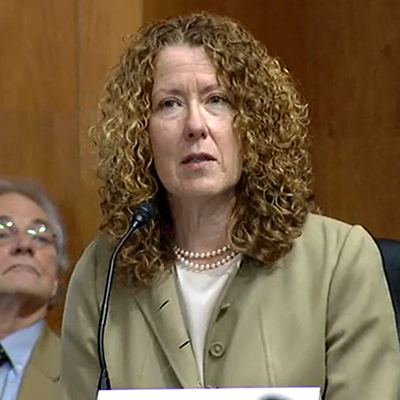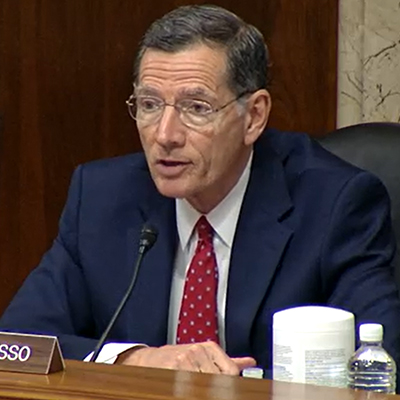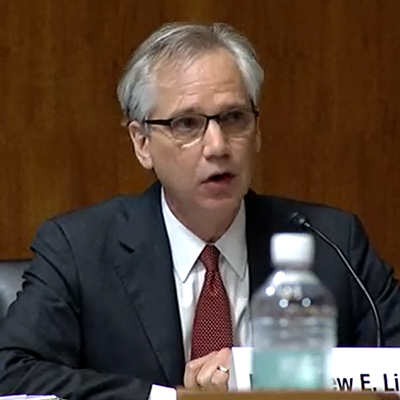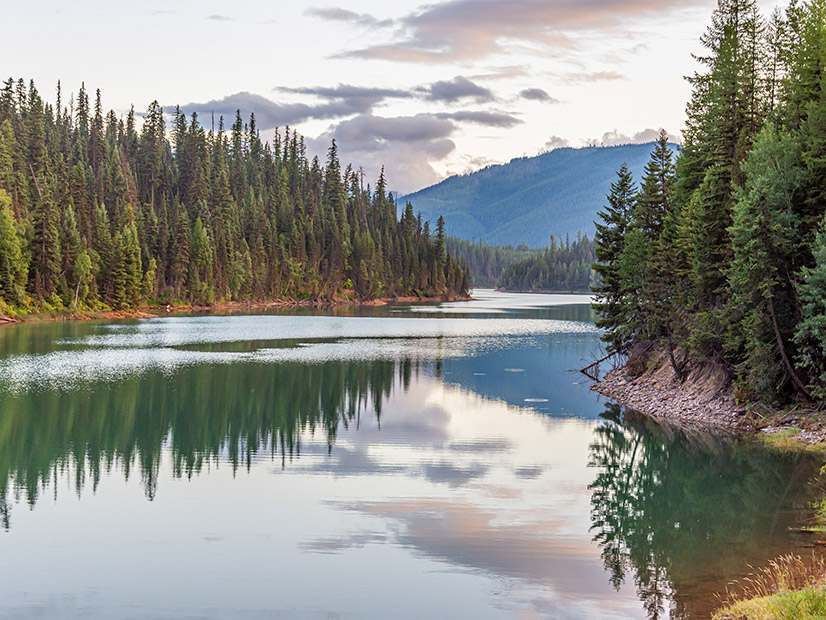Four nominees for key energy and land management positions faced a group confirmation hearing before the Senate Energy and Natural Resources Committee on Tuesday, but the session was clearly focused on only one — Tracy Stone-Manning, President Biden’s pick to head up the Bureau of Land Management.
The agency oversees 247 million acres of public land — about 10% of the U.S. — which include 30% of U.S. minerals, as well as thousands of oil and gas leases and thousands of megawatts of solar and wind. The BLM was without a Senate-confirmed director throughout the Trump administration.

Hailing from Montana, Stone-Manning said she is an avid outdoorswoman devoted to smart, multiple uses of public lands, with a resume of policy work based on bipartisan collaboration — as a senior aide to Sen. Jon Tester (D-Mont.), director of the state’s Department of Environmental Quality and chief of staff to former Democratic Gov. Steve Bullock. But she spent most of the hearing sidestepping hard questions from Republicans about Biden’s pause on oil and gas leasing on federal lands and her involvement with advocacy groups, such as Montana Conservation Voters (MCV).
Stone-Manning was board treasurer of the group, which is highly critical of Sen. Steve Daines (R-Mont.). Sen. John Barrasso (R-Wyo.), ranking member of the committee, pressed Stone-Manning hard on her role in what he called MCV’s 2020 smear campaign against Daines. According to information on the MCV website, the advertising campaign consisted of “a billboard in Belgrade, newspaper ads in Billings and Bozeman and aerial advertising in both Bozeman and Missoula.”

“On behalf of all the Republican senators, we want to know how members of this committee can have any confidence that you’re going to work with us in any kind of bipartisan way?” Barrasso said.
“Senator, I have led nonprofit organizations, and I have been on the board of nonprofit organizations, and I take very seriously the difference in those two roles,” Stone-Manning replied. “I was a voluntary board member who had a core belief of never micromanaging staff. I hope that you would look to my record in my day job on that issue and my approach to it.”
The other nominees at the hearing were Shalanda H. Baker, nominated as director of the Office of Minority Economic Impact at the Department of Energy; Samuel T. Walsh, nominated as DOE general counsel; and Andrew Light, nominated as assistant secretary of energy for international affairs.
‘Plenty of Room’
Introducing Stone-Manning to the committee, Tester himself answered Barrasso’s criticisms. Stone-Manning “listens; she works; she does the right thing,” he said. “There are places we can mine; there are places we can drill; there are places that are appropriate for resource extraction; there are other places that are not. Tracy Stone-Manning brings that understanding to the table.”
Barrasso did not let up, questioning Stone-Manning about her most recent job as senior adviser for conservation policy at the National Wildlife Federation. “You urged the Forest Service to abandon plans to expand oil and gas development in our national forests,” he said. “You said at the time [that] that the use of the proposed rule would create ‘deadline loopholes for oil and gas companies so they can avoid compliance with environmental regulation.’”
He also pushed Stone-Manning on Biden’s current pause on oil and gas leasing on public lands, which, he said, could lead to Americans importing fossil fuels from countries that do not have the same rigorous environmental standards as the U.S.

Stone-Manning repeatedly finessed this and similar questions. “I think the president and [Secretary of Interior Deb Haaland] have been clear that this leasing pause is giving the department time to take a hard look at the oil and gas program and make sure that it is right for the century we’re living in,” she said. “If I have the honor of being confirmed, I look forward to digging in and helping with those discussions.”
When Sen. John Hoeven (R-N.D.) pressed Stone-Manning on whether she would commit to resuming quarterly auctions for energy development on federal lands, she cited her work at the Montana DEQ.
“I had a goal of providing certainty for folks, certainty for business, certainty for local communities,” she said. “I was clear with people that I would take as transparent and open and timely [an] approach as possible, and that no one would be surprised by the decisions that we made because everybody would be part of the decision making along the way. I commit to you that we’re going to work as efficiently as possible, as government should.”
Sen. James Lankford (R-Okla.) got a more direct answer when he asked Stone-Manning about a past statement she had made “that there’s plenty of room in the West for oil and gas development.” Stone-Manning quickly agreed.
According to information on the BLM website, as of 2020, the agency had 23,878 producing oil and gas leases on federal land, 7,372 of which are in Wyoming. Existing leases are not affected by the president’s pause on new leasing.
Significantly, Stone-Manning got no questions about renewable energy development on federal lands. According to the BLM, as of May 2021, 36 wind projects on federal land had a total capacity of 2,900 MW, while 37 solar projects had 7,000 MW. The agency recently approved the 350-MW Crimson solar project in California.
Lankford also raised concerns about long permitting times. “It’s one thing to say, it is available; it’s another thing to say, it’s really not available because it’s going to take a really long time to get to it,” he said. “Capital won’t flow to places that it takes a really long time to actually use the lands, and the taxpayers lose out and the country loses out in the long term.”
A Better Deal than China’s
Light got on better with Republican senators like Lankford who quizzed him on his views on LNG exports — and the need for the U.S. to compete with China and Russia in international markets.

Introducing himself to the committee as the grandson of West Virginia coal miners, Light noted that LNG exports are now at an all-time high and expected to increase, “My job is to make sure U.S. gas is competitive around the world. More and more countries are looking for cleaner sources of gas. Russia’s got the dirtiest source of gas right now. We’ve got to make sure that ours is cleaner, and there are still those markets around the world.”
Sen. Bill Cassidy (R-La.) also queried Light about China’s massive Belt and Road Initiative, through which the country is building coal plants and other infrastructure in developing nations around the world.
“What China is doing is a threat not only to the climate, it’s a threat to U.S. national security,” Light said. “We’ve got to create a whole-of-government approach. We’ve got to be able to go into these countries and offer them packages that include funding. The packages could certainly include natural gas. We’ve got to go in and assess what is the best option for these countries, given what their commitments are with respect to their energy transition. We’ve got to offer something which is a better deal than China can.”
Light also sees a big role for the U.S. in carbon-capture and other emissions-free technologies. “We have to provide decarbonization. Energy is good; it’s the emissions that are a problem. We can become the leaders in abated natural gas technology around the world; we can become the leaders in abated coal technology around the world. We’ve got to innovate towards that.”




